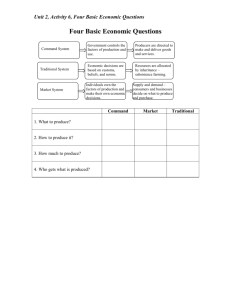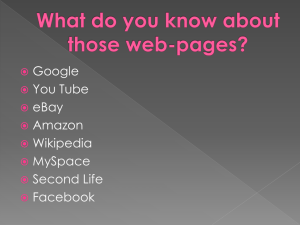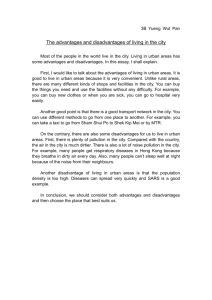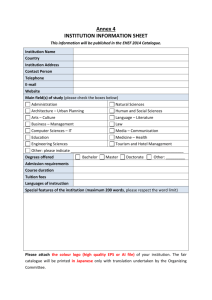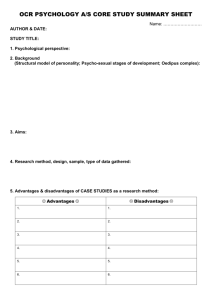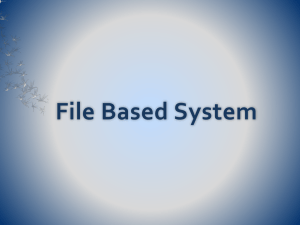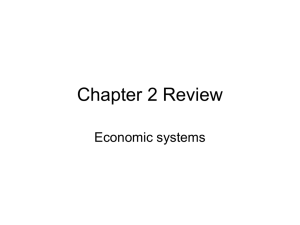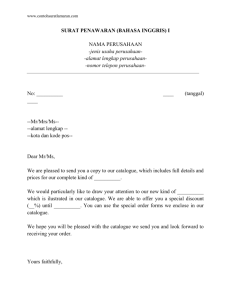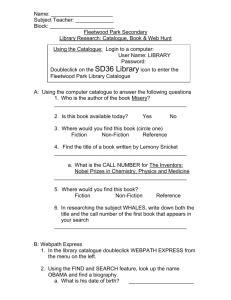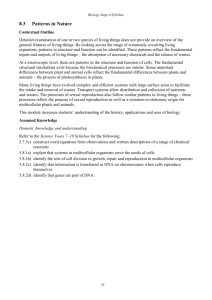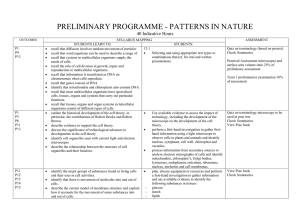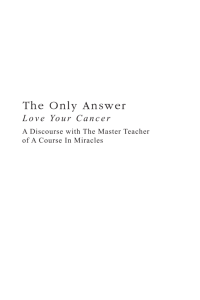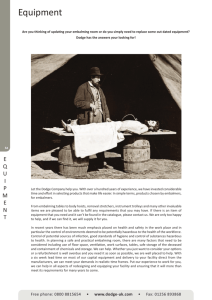LearnEnglish Professionals
advertisement
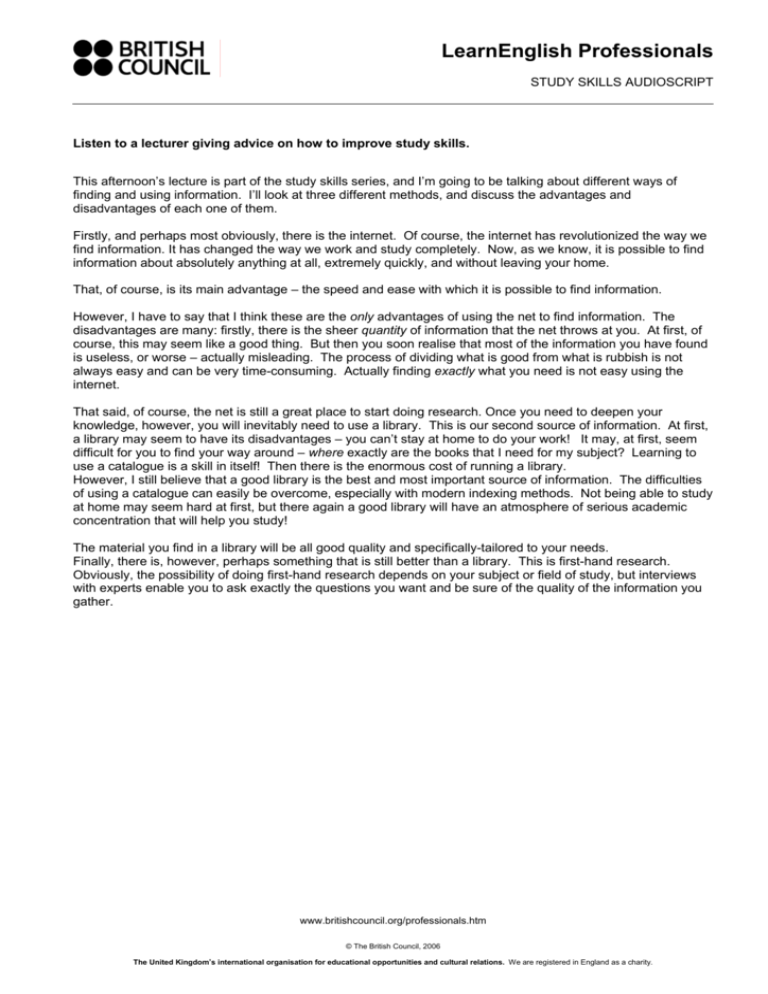
LearnEnglish Professionals STUDY SKILLS AUDIOSCRIPT Listen to a lecturer giving advice on how to improve study skills. This afternoon’s lecture is part of the study skills series, and I’m going to be talking about different ways of finding and using information. I’ll look at three different methods, and discuss the advantages and disadvantages of each one of them. Firstly, and perhaps most obviously, there is the internet. Of course, the internet has revolutionized the way we find information. It has changed the way we work and study completely. Now, as we know, it is possible to find information about absolutely anything at all, extremely quickly, and without leaving your home. That, of course, is its main advantage – the speed and ease with which it is possible to find information. However, I have to say that I think these are the only advantages of using the net to find information. The disadvantages are many: firstly, there is the sheer quantity of information that the net throws at you. At first, of course, this may seem like a good thing. But then you soon realise that most of the information you have found is useless, or worse – actually misleading. The process of dividing what is good from what is rubbish is not always easy and can be very time-consuming. Actually finding exactly what you need is not easy using the internet. That said, of course, the net is still a great place to start doing research. Once you need to deepen your knowledge, however, you will inevitably need to use a library. This is our second source of information. At first, a library may seem to have its disadvantages – you can’t stay at home to do your work! It may, at first, seem difficult for you to find your way around – where exactly are the books that I need for my subject? Learning to use a catalogue is a skill in itself! Then there is the enormous cost of running a library. However, I still believe that a good library is the best and most important source of information. The difficulties of using a catalogue can easily be overcome, especially with modern indexing methods. Not being able to study at home may seem hard at first, but there again a good library will have an atmosphere of serious academic concentration that will help you study! The material you find in a library will be all good quality and specifically-tailored to your needs. Finally, there is, however, perhaps something that is still better than a library. This is first-hand research. Obviously, the possibility of doing first-hand research depends on your subject or field of study, but interviews with experts enable you to ask exactly the questions you want and be sure of the quality of the information you gather. www.britishcouncil.org/professionals.htm © The British Council, 2006 The United Kingdom’s international organisation for educational opportunities and cultural relations. We are registered in England as a charity.
